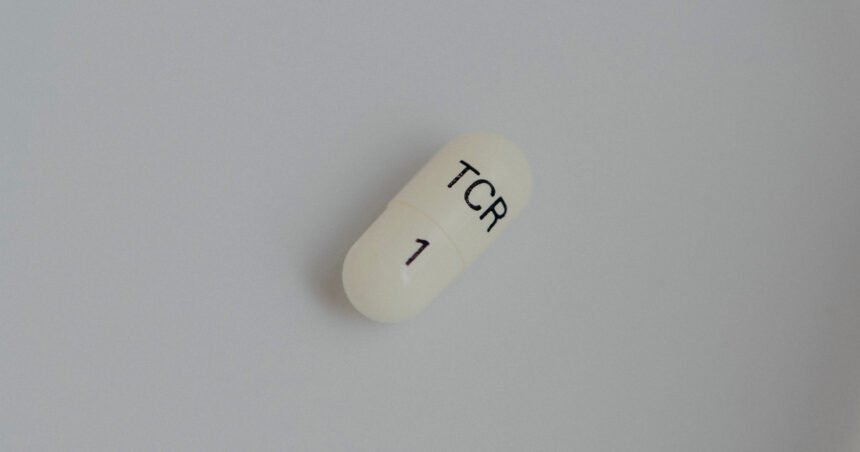We are still reporting. If you are a current or former FDA employee or someone in the industry with information about the agency, the safety of generic drugs, or the manufacturers that make them, our team wants to hear from you. Megan Rose can be reached on Signal or WhatsApp at 202-805-4865. Debbie Cenziper can be reached on Signal or WhatsApp at 301-222-3133. You can also email us at [email protected].
It’s been 17 years since tainted blood thinner from China injured or killed hundreds of people in the United States, and since then, contaminants and other defects have appeared in a cross section of America’s generic drugs.
To understand how risky drugs could end up in our medicine cabinets, ProPublica spent more than a year investigating the U.S. Food and Drug Administration’s oversight of foreign factories accused of violating critical quality standards. Reporters focused largely on factories in India, a key supplier of the world’s generic drugs.
The investigation exposed how the FDA, without warning the public, allowed more than 150 drugs or their ingredients into the United States over the past dozen years even though they were made at factories banned from shipping products here. The agency did not routinely test the drugs as they were circulating in the United States or actively track whether consumers had been harmed.
The FDA and several former agency officials told ProPublica they believed the medications that were exempted from import bans were safe. They said the agency required generic drugmakers to conduct additional quality checks before the drugs were sent to the United States, including extra drug-safety testing and bringing on third-party consultants to verify the results.
To conduct its analysis, Propublica used Redica Systems, a quality and regulatory intelligence company with a vast collection of agency documents, as well as the Internet Archive’s Wayback Machine, to find hundreds of “import alert” lists published by the FDA over more than 15 years. The lists identified factories barred from shipping drugs to the United States because the FDA found manufacturing violations.
In examining those lists, reporters discovered references to drugs or raw ingredients that the FDA had excluded from the bans. The exemptions were mentioned with almost no explanation, scattered throughout the often lengthy alerts.
Because the FDA does not keep a comprehensive list of drugs that have been exempted from bans over the years, ProPublica had to build one. Reporters employed two distinct methods to do this. First, ProPublica wrote code that used keyword search and pattern matching to pull drug names and manufacturing locations from the FDA alerts. Second, ProPublica used artificial intelligence to extract the same information. Results from each analysis were cross-checked, and reporters verified each of the results.
In finalizing its analysis, ProPublica counted all drugs that were exempted from each banned factory. Sometimes, the same drug was exempted from multiple factories and was added to each factory’s total. In a handful of cases, the FDA exempted different formulations of the same drug, such as a tablet, capsule or injectable. ProPublica counted those different forms as distinct drugs.
ProPublica’s list of drugs exempted from import bans could be an undercount; there is no way to know for sure without a full accounting from the FDA.
The reporting team interviewed more than 200 people, including former FDA inspectors who repeatedly reported breakdowns in drugmaking overseas and top administrators directly involved in drug safety. ProPublica also obtained troves of government and corporate documents in the United States and India and filed suit against the FDA in November after the agency said it would take as long as two years to turn over public records related to drug safety. The FDA has since begun to provide some of the requested records; the case is active in federal court in New York.
ProPublica paid Redica for access to FDA inspection records and ultimately reviewed reports spanning more than two decades.
To gauge what the FDA knew about the drugs before and after they were exempted from import bans, ProPublica drew on reports from the agency’s Adverse Event Reporting System. The reports are submitted to the FDA by consumers, health care professionals, drug companies and others and used by the agency to detect safety concerns and potential patterns of harm. Each contains information about conditions or reactions linked to drugs and, in some cases, complaints about product quality.
ProPublica identified more than 8,000 reports about the drugs excused from factorywide import bans both before and after the bans were put in place. ProPublica’s analysis included reports from 2010 to early 2025.
The FDA has cautioned that information in the reports is not verified and there may be no “causal relationship” between the drug and the adverse event. Multiple drugs are sometimes listed in a single adverse event report. ProPublica limited its analysis to cases that listed only one primary suspect drug.
Some reports don’t list specific concerns but instead reference academic studies; ProPublica excluded those reports.
To examine the FDA’s role in the growth of foreign drugmakers, ProPublica used the agency’s Orange Book, a register of drugs considered safe and effective by the FDA. The list includes approvals for both brand name and generic drugs, the dates the drugs were approved and the names of the companies that submitted the applications. ProPublica’s analysis showed that companies with troubled regulatory histories received scores of approvals to introduce generic drugs in the United States — and some went on to receive exemptions from import bans.
Journalists have been uncovering problems with generic drugs for years. Katherine Eban’s bestselling 2019 book, “Bottle of Lies,” exposed how Indian drugmakers failed to follow basic quality and safety standards and often knowingly sent shoddy drugs abroad. In 2023, a Bloomberg investigation revealed, among other things, how poisoned cough syrup made in India spread around the world. And the independent watchdog The People’s Pharmacy has raised repeated concerns about the quality of some generic drugs.
ProPublica collaborated with journalism students from Northwestern University’s Medill Investigative Lab in Washington, D.C. Haajrah Gilani, Emma McNamee, Julian Andreone, Isabela Lisco, Aidan Johnstone, Megija Medne, Yiqing Wang, Phillip Powell, Gideon Pardo, Casey He, Lindsey Byman, Josh Sukoff, Kunjal Bastola, Shae Lake, Alyce Brown, Zhiyu Solstice Luo, Jessie Nguyen, Sinyi Au, Kate McQuarrie and Katherine Dailey contributed to this report.







